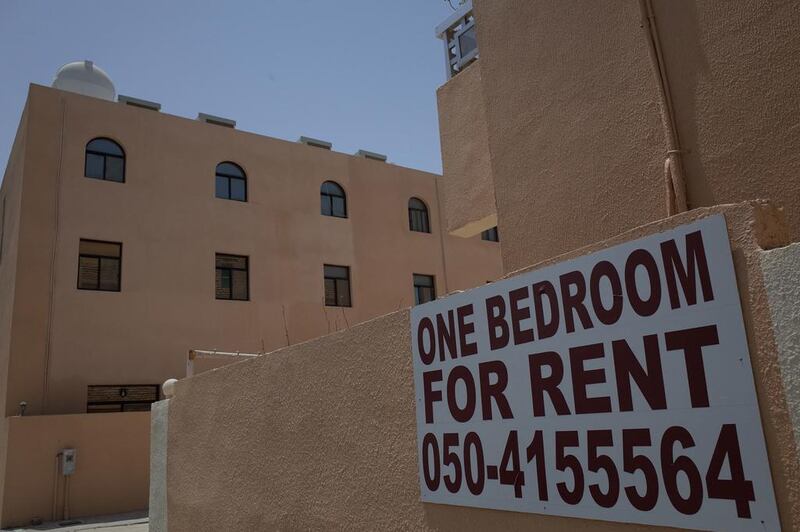Rent controls are a policy favoured by many governments, including those of the Arabian Gulf countries, with the goal of helping low-income families access affordable housing.
In our last article, we explained why rent controls create housing shortages and diminish housing quality. In this article, we dig deeper into the damage caused by rent controls, highlighting how they waste tenants’ valuable time and resources.
If rent controls create shortages, how is the shortage resolved? Who gets lucky and who does not?
When price controls are implemented in their strictest, purest form, consumers enter a rationing queue, such as waiting for a place in a prestigious school. The queue creates a war of attrition — those who are willing to wait longest are most likely to get served. Some people give up immediately and go without; other, less fortunate people enter the queue but quit after a considerable waiting time, once they realise that they do not possesses the patience of others, or perhaps because they have more important demands upon their time. If you visit any country with rent controls, you are likely to witness significant waiting lists on housing units, possibly mediated by the government to ensure a transparent and fair process.
In essence, therefore, consumers go from paying for a good purely financially in a regular market without price controls, to paying for a good using a combination of money and time in a market with price controls.
This hybrid payment alternative does present a key potential advantage, which is that it may result in a more egalitarian distribution of housing. In certain situations, low-income households may be systematically richer than high-income households in their ability to wait in line, somewhat compensating for their financial disadvantage.
However, queuing to resolve a shortage suffers from a fundamental disadvantage compared to purely financial payments, which is that the waiting time constitutes resources permanently lost by society. In contrast, under purely financial payments, when buyers bid prices up, a buyer's loss transforms into a seller's benefit.
To illustrate this more clearly, consider the following example. Sabah owns an apartment and has two potential tenants, Sabika (rich); and Yusuf (poor). Sabika is willing to rent at up to Dh100,000 a month, while Yusuf is willing to rent at up to Dh20,000 a month. In the absence of rent controls, the market rent will rise until it exceeds Dh20,000, forcing Yusuf out of the market, limiting his housing options as a direct result of his limited wealth.
To assist Yusuf secure housing, the government imposes a rent ceiling of Dh10,000. Sabah creates a virtual queue to decide who gets the apartment between Sabika and Yusuf. After three months, Sabika — who is less patient — gives up, and Yusuf rents the apartment.
Without rent controls, every dirham that Sabika paid directly benefited Sabah, meaning that there was no wastage. However, under rent controls, the three months of waiting time expended by Sabika and Yusuf did not benefit Sabah. Therefore, at the societal level, the price of ensuring that the poorer person had a chance of securing housing was everybody waiting three months.
This process of frittering away the benefits of a market exchange by having people engage in wasteful ways of resolving shortages is known as “rent dissipation”. The gains from trade are eroded to nobody’s benefit, just like the loss of speed from friction or air resistance. In Communist countries, rent dissipation was not merely time-based - people queuing for basic commodities endured the physical discomfort of waiting in adverse weather conditions, enduring boredom and being away from their families.
Wasteful queues are not the only ways to resolve shortages, however, and alternatives exist that involve no rent dissipation, such as lotteries. Sabah could have instantly drawn lots, saving Sabika and Yusuf three months of waiting.
Yet in practice, for a variety of reasons, lotteries are either not used, or are abused. In all countries with rent controls, there is a grave risk of corruption in the allocation process — people will pay overt or covert bribes to jump ahead in the queue, or to get a “lucky” draw in the lottery. Alternatively, those who are politically connected might be better placed to take advantage of the system.
Unfortunately, most of these abuses typically hurt low-income households the most, since they have the smallest ability to pay bribes or secure favours from those in charge of housing allocation decisions. Thus, under certain conditions, low-income households, who are often the purported beneficiary of rent controls, end up suffering the triple whammy of facing a housing shortage, being cheated by corruption in the rationing queue and enduring lower quality housing when they do eventually secure a unit.
Despite these grave risks, why do governments and people still laud rent controls? And is there a more effective alternative? We discuss these issues in our next article.
We welcome economics questions from our readers via email at omar@omar.ec or through Twitter at (@omareconomics).







